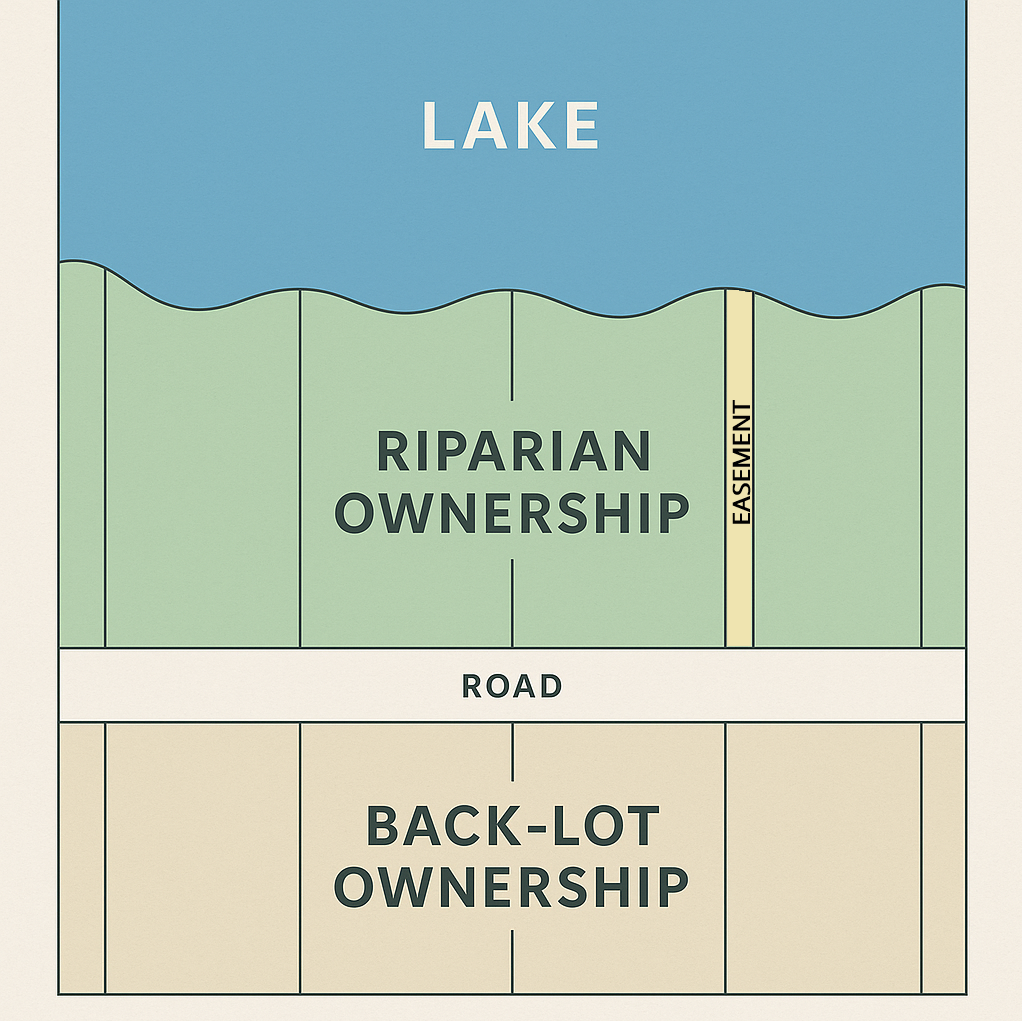Back-Lot Rights and Platted Access
Owning land near a Michigan lake does not always mean owning riparian rights. In many subdivisions, roads or strips of land separate “back-lot” owners from the water. Access is often provided by a recorded easement or by a platted access point. Understanding what these terms mean—and what they do not mean—is critical to avoiding disputes with neighbors or associations.
What is an Easement?
An easement is a legal right to use another person’s property for a specific purpose. For lakefront property, this usually means giving back-lot owners the right to walk across riparian land to reach the water. Importantly, an easement is limited by its written language. Unless the document expressly allows it, back-lot owners cannot construct or maintain docks, cannot moor or store boats, and cannot use the access strip for picnicking, vehicle parking, or equipment storage.
Michigan courts have repeatedly emphasized that easements are strictly construed. If the easement language refers only to “ingress and egress,” use is limited to simple foot travel. Anything beyond that requires clear authorization in the recorded document.

Platted Access and Road Ends
In some subdivisions, lake access comes through a platted lot or a public road end. These areas frequently generate disputes. A platted access is governed by the specific language of the plat. Unless the plat language clearly authorizes broader uses, Michigan courts have limited activity to mere access and have rejected claims for shared docks or permanent mooring.
Public road ends are even more restrictive. Michigan law, specifically MCL 324.30111b, prohibits their use for permanent docks, seasonal boat hoists, or storage. They may only be used for public passage and for temporary stops, not for long-term or exclusive enjoyment.
Back-Lot vs. Front-Lot Owners
A key distinction in Michigan law is between back-lot and front-lot owners. Only front-lot owners whose property directly touches the water hold riparian rights. Back-lot owners do not gain riparian rights through an easement. They may only use the lake in the limited ways authorized by the deed or plat. Courts have repeatedly held that attempts by back-lot owners to exercise riparian rights beyond what is permitted can result in injunctions and other legal remedies.
Preventing and Resolving Disputes
Conflicts often arise when back-lot owners attempt to overextend their access rights, or when riparian owners try to block lawful access. The resolution depends heavily on the exact wording of deeds, plats, and recorded easements. Clear documentation, professional surveys, and timely legal advice are essential. Michigan appellate courts continue to refine these rules, and outcomes can vary depending on the facts of each case.
In short, easements grant limited rights of use, not full riparian ownership. If you are facing a dispute over access, easement rights, or road end usage, consulting a Michigan riparian rights attorney is the best way to protect your interests.